MercoPress. South Atlantic News Agency
Economy
-
Thursday, June 11th 2009 - 10:05 UTC
Thomas Cook “completely ring-fenced” against bankruptcy

Germany's Arcandor, which owns 52% of Thomas Cook, filed for bankruptcy protection after the German government rejected a request for loan guarantees.
-
Wednesday, June 10th 2009 - 07:55 UTC
Argentina will consume Uruguayan beef for bicentenary celebration

Argentina will celebrate its bicentenary consuming Uruguayan beef forecasted the president of the powerful farmers’ association Argentine Rural Society, Hugo Biolcati. Production won’t be enough to cover Argentina’s demand next year, “either we bring per capita consumption down from 70 kilos to 50 kilos, or we import beef and it won’t be cheap”.
-
Wednesday, June 10th 2009 - 07:34 UTC
US banks ready to repay bail-out money, but fears of further credit crunch
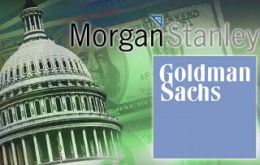
Ten of the largest US banks will be able to repay 68 billion US dollars in government bail-out money, the US Treasury says, a sign the financial crisis is easing. President Barack Obama welcomed the move but said it was not a sign that “our financial troubles were over”.
-
Wednesday, June 10th 2009 - 02:49 UTC
Brazil in recession, but mild recovery expected at end of 2009
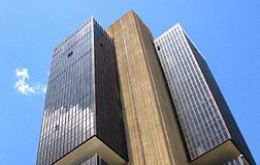
Brazil's economy is showing clear signs of economic recovery though it requires additional fiscal and monetary stimulus to ensure growth this year, said on Tuesday Finance Minister Guido Mantega reacting to the latest data which showed the country had fallen into technical recession.
-
Tuesday, June 9th 2009 - 12:50 UTC
Spain to the rescue of banks with 9 billion Euros emergency fund
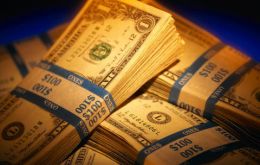
The Spanish government plans to set up a 9 billion Euros emergency fund to prop up the country's weakest banks if other measures fail, Finance Minister Elena Salgado said in a Sunday interview with Madrid’s ABC.
-
Monday, June 8th 2009 - 13:51 UTC
Hamburg-Sud largest container vessel tested Montevideo port’s efficiency
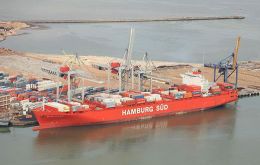
Hamburg Sud “Rio de la Plata”, the first of a newbuilding series of six identical vessels with a slot capacity of 5.900 containers (and 1.365 reefer container plugs) called last month in Montevideo.
-
Saturday, June 6th 2009 - 14:36 UTC
US job losses moderating but May rate reached 9.4%
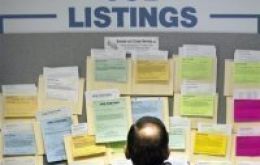
The US White House economic adviser Christina Romer on Friday said that May payrolls data was consistent with a trend of moderating job losses, but the unemployment rate would stay high for a while.
-
Saturday, June 6th 2009 - 14:32 UTC
Chilean inflation below target; economy heading for recession
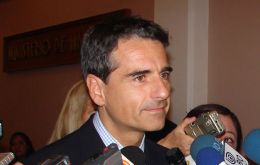
Chile's consumer price index fell a bigger-than-expected 0.3% in May after a fall of 0.2% in April, the National Statistics Institute reported on Friday.
On an annual basis, inflation for the 12 months through May slowed to 3%, the Central Bank's target rate -- from 4.5% for the year through April. In the first five months of 2009, inflation is down to minus 1.1%. -
Friday, June 5th 2009 - 13:13 UTC
ECB anticipates steep GDP fall and “stabilization phase” in 2010

In a move which was widely expected, the European Central Bank (ECB) elected to keep interest rates for the euro zone on hold at 1% and announced that the planned purchase of 60 billion Euros in company bonds will commence in July.
-
Friday, June 5th 2009 - 13:11 UTC
Bank of England keep rates and quantitative easing unchanged
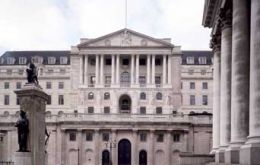
The Bank of England Monetary Policy Committee voted Thursday to maintain the official rate unchanged at 0.5% for the third month in a row, but no fresh measures to stimulate the economy were announced.
